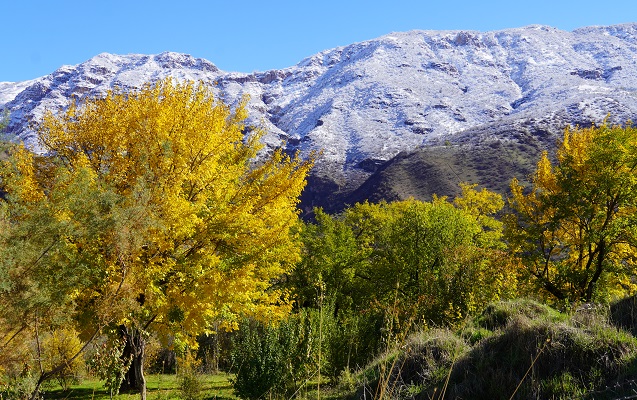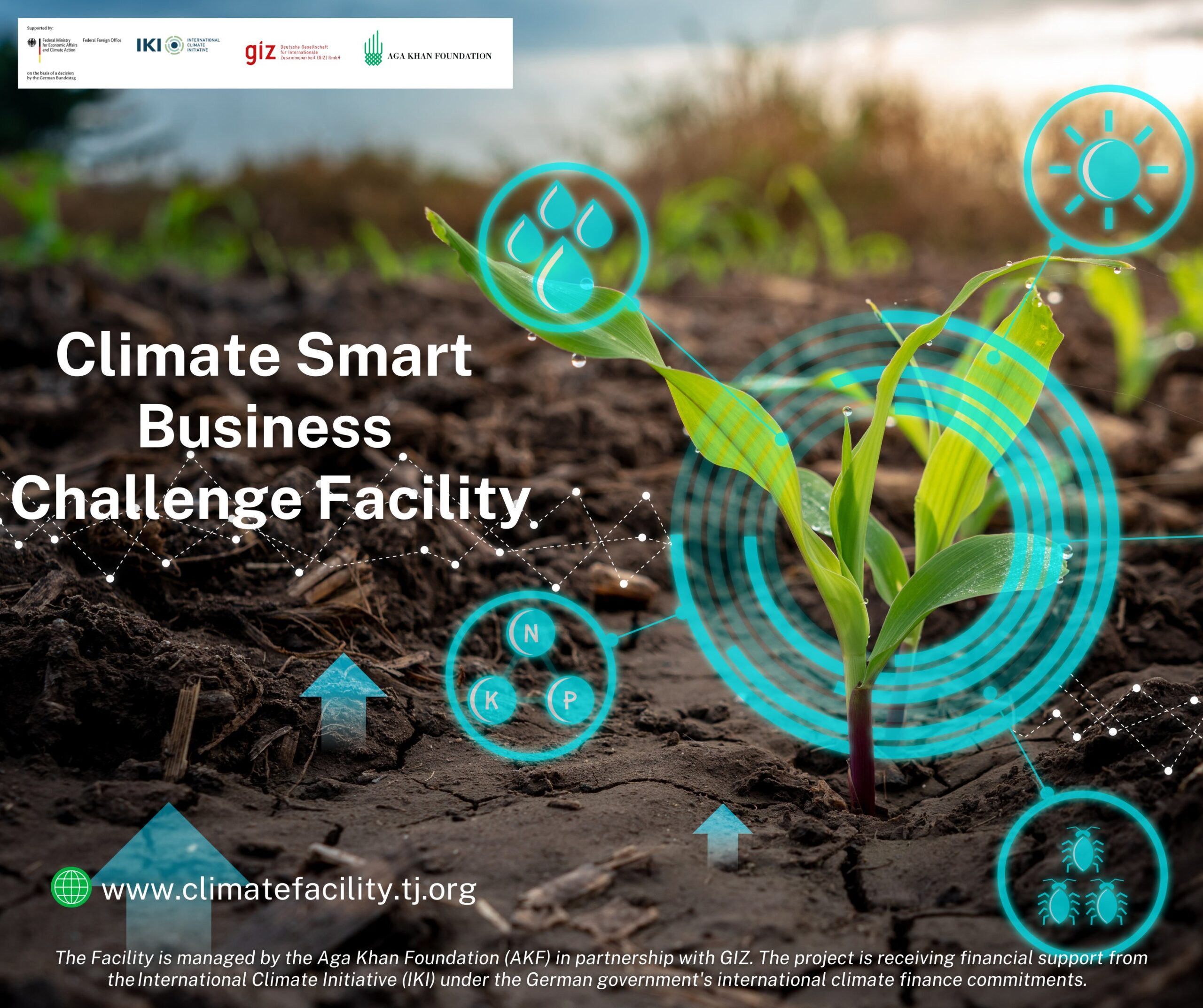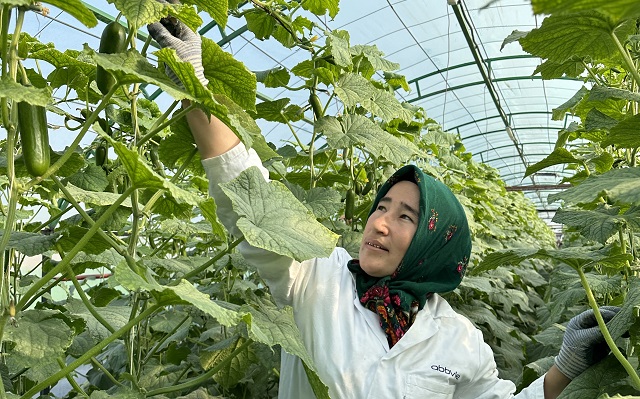Pioneers wanted: Business ideas to combat impact and consequences of climate change

This IKI Small Grants funding institution focuses on innovative low-carbon and climate-resilient solutions in the agriculture and water nexus in Central and South Asia. Through setting up a competitive climate-smart business challenge facility, the Aga Khan Foundation (AKF) establishes an instrument to support local enterprises to implement innovative, context-specific, climate-resilient, and low-carbon business products and services. The support includes financial contributions, technical mentoring, and advisory to the selected small growing businesses. Moreover, peer learning and knowledge management activities will help raising awareness among local businesses in the region on climate risks and smart practices and technologies to adapt to the changing climate. The project also strengthens AKF’s capacities based on a capacity needs analysis, including mainstreaming climate-resilient and gender-sensitive programming.
INITIAL SITUATION
Globally, agriculture, forestry, and other land use (AFOLU) along with energy are among the largest sources of greenhouse gas emissions and a driver of biodiversity loss and ecosystem degradation. At the same time, climate change and a continuous loss of biodiversity have already negatively affected the AFOLU sector. Moreover, the role of water availability and accessibility is becoming increasingly crucial. Projected shifts in precipitation (pronounced in regions with the highest agricultural productivity), combined with warmer temperatures will have negative impacts on crop yields in all three countries. The challenge is to enhance sustainability in the agriculture and water sector in times of climate change while protecting livelihoods and, at the same time, contributing to emission reduction through selected businesses adopting climate conscious business approaches. Integrated and innovative solutions are urgently required. Private sector actors in the agriculture and water nexus are important drivers of innovations and can provide the required investments for such solutions. However, they currently need more awareness, knowledge, incentives, and funds to take multi-beneficial climate actions and contribute to the necessary transformational change.
TARGET GROUPS
The project targets private sector actors from small and medium-scale businesses and cooperatives involved in agricultural and water nexus value chains. They will benefit from increased climate resilience and capacity to provide low-carbon goods and services.
GALLERY
PROJECT APPROACH
AKF establishes a regional climate-smart business challenge facility and implements a first call for proposals. In total, six innovative business approaches are piloted and provided with tailored technical support. Additionally, a robust knowledge-management and communication strategy helps to increase the awareness of the local business community of climate-related risks, climate change adaptation and low-carbon technologies. Finally, AKF conducts a capacity needs assessment and implements measures to mainstream climate-resilient and gender-sensitive programming to enhance institutional expertise and implementation strength. A detailed plan of action addresses the identified gaps.
ABOUT THE ORGANISATION
AKF is a private, not-for-profit, non-denominational, international development agency established in 1967 by His Highness the Aga Khan. AKF brings together human, financial, and technical resources to address some of the challenges faced by the poorest and most marginalised communities in the world. With an emphasis on women and girls, AKF invests in human potential, expanding opportunities and improving quality of life.


